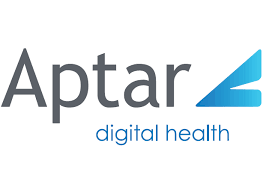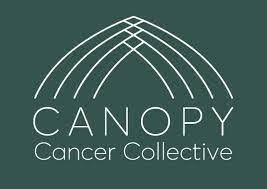Learn more about our projects below.
Active Projects

The Support Through Remote Observation and Nutrition Guidance (STRONG) intervention
Our study team developed the Support Through Remote Observation and Nutrition Guidance (STRONG) intervention which aims to reduce malnutrition and improve quality of life among cancer patients. The multi-level intervention includes system-level (e.g., routine malnutrition and screening), provider-level (e.g., dietitian training and web-based dashboard), and patient-level strategies (e.g., individualized nutrition plan, self-monitoring of dietary intake via Fitbit, ongoing goal monitoring and feedback). The intervention is being evaluated through several ongoing studies including individuals with pancreatic cancer, individuals with gastroesophageal cancer, individuals receiving cytoreductive surgery and heated intra-peritoneal chemotherapy (CRS-HIPEC), and individuals receiving pancreatectomy surgery. STRONG intervention development and pilot testing has been funded grants from the Pancreatic Cancer Action Network Alliance, the Department of Defense, and Moffitt Cancer Center.
 Cancer Coaching and Remote Education for Self-Empowerment (CARES) Study
Cancer Coaching and Remote Education for Self-Empowerment (CARES) Study
Our team is partnering with Osara Health to pilot test a digital coaching intervention for pancreatic cancer patients and their caregivers (N= 10 patient-caregiver dyads). The 6-week intervention will provide patients with coaching services to navigate common issues encountered during cancer care including symptom management, nutrition, exercise, and stress management. Caregivers will receive coaching services to navigate common issues associated with cancer caregiving including healthcare system navigation, the practical aspects of caregiving, communication, and self-care. The primary aim of the study is to assess the feasibility, acceptability, and usability of digital coaching for pancreatic cancer patients and their caregivers.
Digital therapeutic for cancer symptom management among head and neck cancer patients
 Our team is partnering with Aptar digital health to pilot test a digital therapeutic for cancer symptom management among head and neck cancer patients receiving chemoradiation (N=20 patients). The 90-day intervention will provide cancer patients with a mobile app to report symptoms and receive feedback in real-time on how to manage low-grade symptoms. High-grade symptoms reported will be addressed by clinic teams who will have access to a provider portal for symptom monitoring. The primary aim of the study is to assess the feasibility, acceptability, and usability of the digital therapeutic for head and neck cancer patients.
Our team is partnering with Aptar digital health to pilot test a digital therapeutic for cancer symptom management among head and neck cancer patients receiving chemoradiation (N=20 patients). The 90-day intervention will provide cancer patients with a mobile app to report symptoms and receive feedback in real-time on how to manage low-grade symptoms. High-grade symptoms reported will be addressed by clinic teams who will have access to a provider portal for symptom monitoring. The primary aim of the study is to assess the feasibility, acceptability, and usability of the digital therapeutic for head and neck cancer patients.
Developing an embedded palliative clinic model to expand early access to palliative care for pancreatic cancer patients
Our team recently received funding from the Canopy Cancer Collective to pilot test an embedded palliative care model within the gastrointestinal oncology clinic to improve the timeliness of palliative care receipt among patients with advanced pancreatic cancer (N= 50). The goal of this pilot study is to assess the feasibility and acceptability of the embedded palliative clinic model as an implementation strategy for increasing access to early palliative care among pancreatic cancer patients.
Completed Projects
Disparities in treatment patterns and outcomes among endometrial cancer patients
Our team received funding from Flatiron Health to evaluate racial and ethnic disparities in treatment patterns including end-of-life care and supportive care access for endometrial cancer patients. The study will also explore disparities in treatment patterns based on health insurance coverage. The project leverages Flatiron Health database which collects real-world clinical data from oncology patients in academic and community settings.
Disparities in cancer treatment delays during the COVID-19 pandemic
Our team recently received funding from the ASCO Foundation, Conquer Cancer®, to evaluate disparities in cancer care and treatment disruption during the COVID-19 pandemic. The project leverages ASCO registry data to explore how cancer care delivery was affected nationally during the pandemic.
